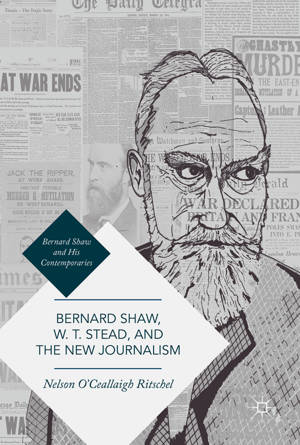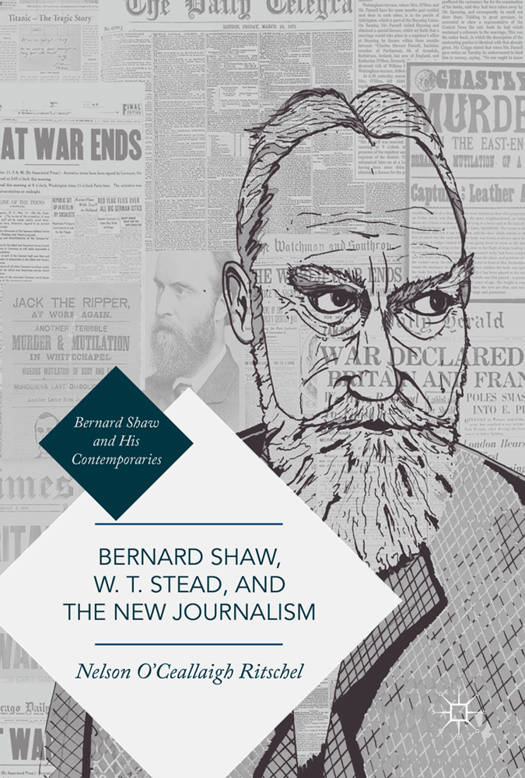
- Afhalen na 1 uur in een winkel met voorraad
- Gratis thuislevering in België vanaf € 30
- Ruim aanbod met 7 miljoen producten
- Afhalen na 1 uur in een winkel met voorraad
- Gratis thuislevering in België vanaf € 30
- Ruim aanbod met 7 miljoen producten
Zoeken
Bernard Shaw, W. T. Stead, and the New Journalism
Whitechapel, Parnell, Titanic, and the Great War
Nelson O'Ceallaigh Ritschel
€ 94,95
+ 189 punten
Uitvoering
Omschrijving
This book explores Bernard Shaw's journalism from the mid-1880s through the Great War--a period in which Shaw contributed some of the most powerful and socially relevant journalism the western world has experienced. In approaching Shaw's journalism, the promoter and abuser of the New Journalism, W. T. Stead, is contrasted to Shaw, as Shaw countered the sensational news copy Stead and his disciples generated. To understand Shaw's brand of New Journalism, his responses to the popular press' portrayals of high profile historical crises are examined, while other examples prompting Shaw's journalism over the period are cited for depth: the 1888 Whitechapel murders, the 1890-91 O'Shea divorce scandal that fell Charles Stewart Parnell, peace crusades within militarism, the catastrophic Titanic sinking, and the Great War. Through Shaw's journalism that undermined the popular press' shock efforts that prevented rational thought, Shaw endeavored to promote clear thinking through the immediacy of his critical journalism. Arguably, Shaw saved the free press.
Specificaties
Betrokkenen
- Auteur(s):
- Uitgeverij:
Inhoud
- Aantal bladzijden:
- 248
- Taal:
- Engels
- Reeks:
Eigenschappen
- Productcode (EAN):
- 9783319490069
- Verschijningsdatum:
- 17/02/2017
- Uitvoering:
- Hardcover
- Formaat:
- Genaaid
- Afmetingen:
- 148 mm x 210 mm
- Gewicht:
- 462 g

Alleen bij Standaard Boekhandel
+ 189 punten op je klantenkaart van Standaard Boekhandel
Beoordelingen
We publiceren alleen reviews die voldoen aan de voorwaarden voor reviews. Bekijk onze voorwaarden voor reviews.











